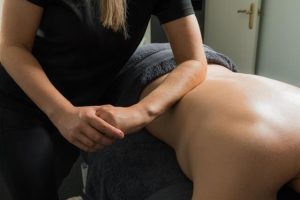
As professional remedial therapists, we often witness the profound impact that stress, anxiety, and depression can have on our physical well-being, particularly on the musculoskeletal system. In this blog, I’ll delve into the intricate relationship between mental health and physical health, shedding light on how these emotional factors can manifest as physical symptoms and how remedial massage therapy plays a crucial role in addressing these issues.
Understanding the Connection
Stress, anxiety, and depression are not just emotional states—they have tangible effects on our bodies. When we experience chronic stress or mental health challenges, our bodies respond by releasing stress hormones like cortisol, which can lead to a range of physical symptoms, including:
- Muscle Tension: Stress and anxiety often manifest as muscle tension, particularly in areas like the neck, shoulders, and back. Prolonged tension can contribute to stiffness, pain, and reduced flexibility.
- Postural Changes: Emotional stress can influence our posture. When we are in a fight, flight or freeze state, our bodies instinctively want to protect our organs, and will shape themselves in certain ways. This leads to slouched shoulders, rounded back, and forward head posture. These postural changes can put strain on the muscles and joints, leading to discomfort, pain and potential musculoskeletal issues.
- Increased Sensitivity to Pain: Studies have shown that individuals experiencing chronic stress or mental health disorders may have a heightened sensitivity to pain. This can exacerbate existing musculoskeletal conditions or contribute to the development of new ones.
- Impact on Breathing Patterns: Stress and anxiety can affect our breathing patterns, leading to shallow breathing or hyperventilation. This can impact the oxygenation of muscles and contribute to feelings of tension and fatigue.
The Role of Remedial Massage Therapy
Remedial massage therapy is a valuable tool in addressing the physical manifestations of stress, anxiety, and depression. Here’s how:
- Muscle Relaxation: Remedial massage techniques such as deep tissue massage, myofascial release, trigger point therapy and dry needling can effectively reduce muscle tension and promote relaxation. By targeting areas of tightness and discomfort, massage therapy helps alleviate pain and improve range of motion.
- Stress Reduction: Massage therapy has been shown to reduce levels of cortisol and promote the release of endorphins, the body’s natural “feel-good” chemicals. This can lead to a sense of calmness, reduced anxiety, and improved overall well-being.
- Improved Circulation: Massage therapy stimulates blood flow to the muscles and tissues, aiding in the delivery of oxygen and nutrients while promoting the process of the removal of metabolic waste products. This enhanced circulation supports muscle recovery and promotes healing.
- Postural Correction: Remedial massage therapists can assess and address postural imbalances caused by stress and tension, as well as other lifestyle factors. Through targeted massage techniques and postural awareness education, clients can improve their posture and reduce strain on the musculoskeletal system.
Empowering Self-Care
In addition to professional remedial massage therapy sessions, incorporating self-care practices can further support musculoskeletal health in the context of stress, anxiety, and depression. This may include:
- Mindfulness and Relaxation Techniques: Practicing mindfulness, deep breathing exercises, meditation, or yoga can help manage stress and promote relaxation.
- Regular Exercise: Engaging in regular physical activity, such as walking, swimming, or yoga, can improve mood, reduce tension, and support overall musculoskeletal health.
- Healthy Lifestyle Habits: Prioritizing adequate sleep, maintaining a balanced diet, staying hydrated, and managing workload and responsibilities effectively are essential aspects of holistic well-being.
- Seeking help from a professional. This can often start with a visit to your GP, who may refer you to a counsellor or psychologist. In some cases, medication may be prescribed. Alternate therapies could include hypnotherapy, yoga, acupuncture, or breathwork. It’s important to find what works for you.
Conclusion:
As professional remedial massage therapists, we believe in the interconnectedness of mental and physical health. By addressing stress, anxiety, and depression through targeted massage therapy techniques and holistic self-care practices, we can promote optimal musculoskeletal health and enhance overall quality of life. It’s important to prioritize self-care and seek professional support when needed to achieve a harmonious balance between mind and body.

